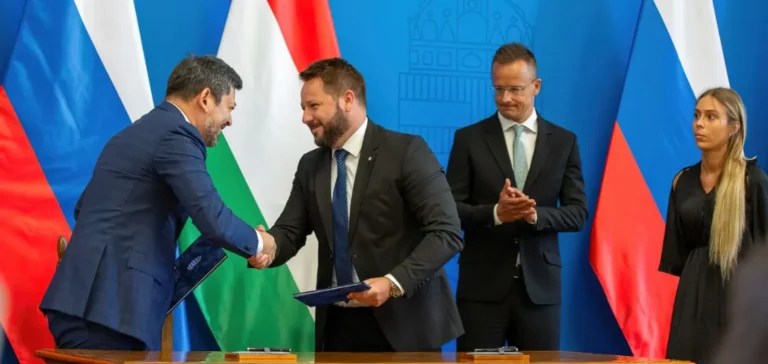Hungary has confirmed its commitment to begin construction of two new nuclear reactors at the Paks power plant, located approximately 100 kilometres south of Budapest. Hungarian Minister of Foreign Affairs and Trade, Peter Szijjarto, stated that preparatory works for the future Paks-2 facility, carried out with the Russian state-owned company Rosatom, could start as early as this autumn.
The Paks-2 project aims to strengthen Hungary’s long-term energy independence. According to national authorities, the plant’s expansion will increase its installed capacity from the current 2,000 megawatts to 4,400 megawatts. The two new reactors, referred to as units 5 and 6, will be equipped with VVER-1200 technology, compliant with international nuclear safety standards.
A structuring nuclear partnership
The construction of Paks-2 stems from an intergovernmental agreement signed in 2014 between Russia and Hungary. The agreement includes state financing from Russia of up to €10bn ($10.86bn), with the total cost estimated at over €12.5bn ($13.57bn). Once completed, the plant is expected to supply a significant portion of Hungary’s electricity demand, thereby contributing to the country’s supply stability.
The existing Paks plant, built using Soviet-era technology, currently consists of four VVER-440 reactors fuelled by Russian nuclear material. These units generate half of the country’s electricity and cover one-third of domestic consumption. Hungarian authorities have already extended their operational lifespan.
Implementation timeline and outlook
The Hungarian government hopes that the pouring of the so-called “first concrete” — a symbolic and technical milestone marking the start of major construction — can be achieved by the end of the year. This stage would signal the launch of full-scale on-site works, which have so far been delayed due to regulatory procedures and contract revisions.
The Paks-2 project aligns with Hungary’s energy strategy, which focuses on a limited diversification of sources but places strong emphasis on nuclear generation. The Hungarian minister highlighted the central role Paks-2 would play in ensuring the country’s energy sovereignty by 2040.






















